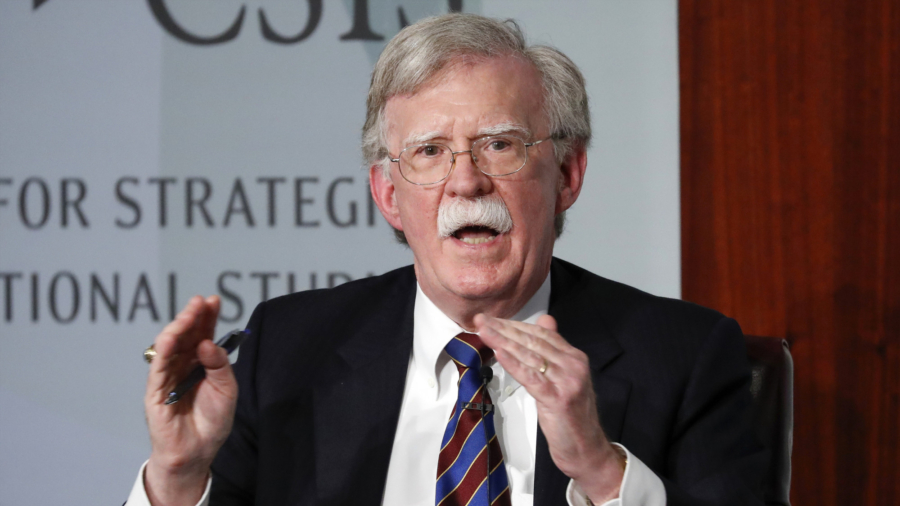The judge presiding over the Trump administration’s bid to delay the release of a book by former national security advisor John Bolton will issue a ruling after an in-person review of classified evidence submitted by the government.
Federal district court Judge Royce Lamberth questioned the attorneys on both sides of the dispute for nearly two hours on June 19 before signaling that his decision will be based on a review of the classified information submitted by the government. Lamberth signaled that the dates on which the information was classified may play a role in his decision.
The Trump administration sued Bolton on June 16, arguing that the former national security advisor abandoned a classification review process for his book, which, according to the government, still contains classified information. The government filed an emergency motion on June 17 asking the court to order Bolton to delay the release of the book and take all necessary steps to recover the copies that have already been disseminated.
After several minutes of technical difficulties related to conducting a remote hearing, Lamberth opened the session by asking the government’s lawyer about what can be done about 200,000 copies of the book having already been sent to stores and warehouses all over the nation and the world.
The government’s lawyer, David Morrell, argued that the onus was on Bolton to figure out how to pull back the book, since Bolton created the problem by abandoning the pre-publication review and keeping the government in the dark about the release date.
Bolton’s attorney, Charles Cooper, argued that the court couldn’t order Bolton to do the impossible, since the book has already been shipped and distributed to the media. Cooper pointed to a video of a CBS reporter reading from Bolton’s book, titled “The Room Where It Happened,” while asking the White House press secretary a question.
The government argued that Bolton violated the terms of his classified information contract by going ahead with the release of the book. Cooper pointed to a portion of one of the contracts to argue that Bolton did not have to have a written permission to go ahead with the book.
After a monthslong review process, which started in late December last year, Ellen Knight, the senior director tasked with conducting pre-publication reviews at the National Security Council, informed Bolton’s attorney that the book, in her view, contained no classified information. Knight noted that the review is still ongoing. Bolton’s attorney tried to obtain a written release, but was told to wait for the review to conclude.
The two sides stopped communicating on May 7. A month later, the White House learned from media reports that Bolton was planning to publish the book on June 23 regardless of the outcome of the classification review. The White House attempted to delay the release, telling Bolton’s team that a secondary review had unearthed more classified information.
The judge’s questions on June 19 did not signal which party he was going to side with. The classified information the judge will review includes at least three examples of records classified at the top secret/secure compartmented information (TS/SCI) level, one of the highest grades of secrecy assigned to government documents. According to Morrell, the TS/SCI classifications were made before Bolton abandoned the review process.
Several top-level government officials submitted affidavits vowing that some of the information in Bolton’s book would, if released to the public, cause grave damage to the national security of the United States. Bolton’s attorney suggested that some of the officials are political appointees. Lamberth noted that William Evanina, the director of the National Counterintelligence and Security Center, has worked under the Obama administration. Evanina told the court (pdf) that the information in Bolton’s book “is precisely what foreign adversaries’ intelligence services seek to target and collect.”
“The unauthorized disclosure of this information could reasonably be expected to enable foreign threat actors to cause serious, and sometimes grave, damage to our national and economic security,” Evanina wrote.
From The Epoch Times


